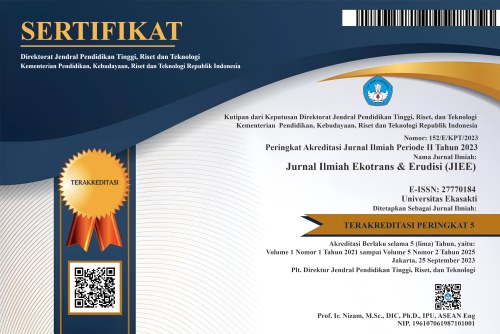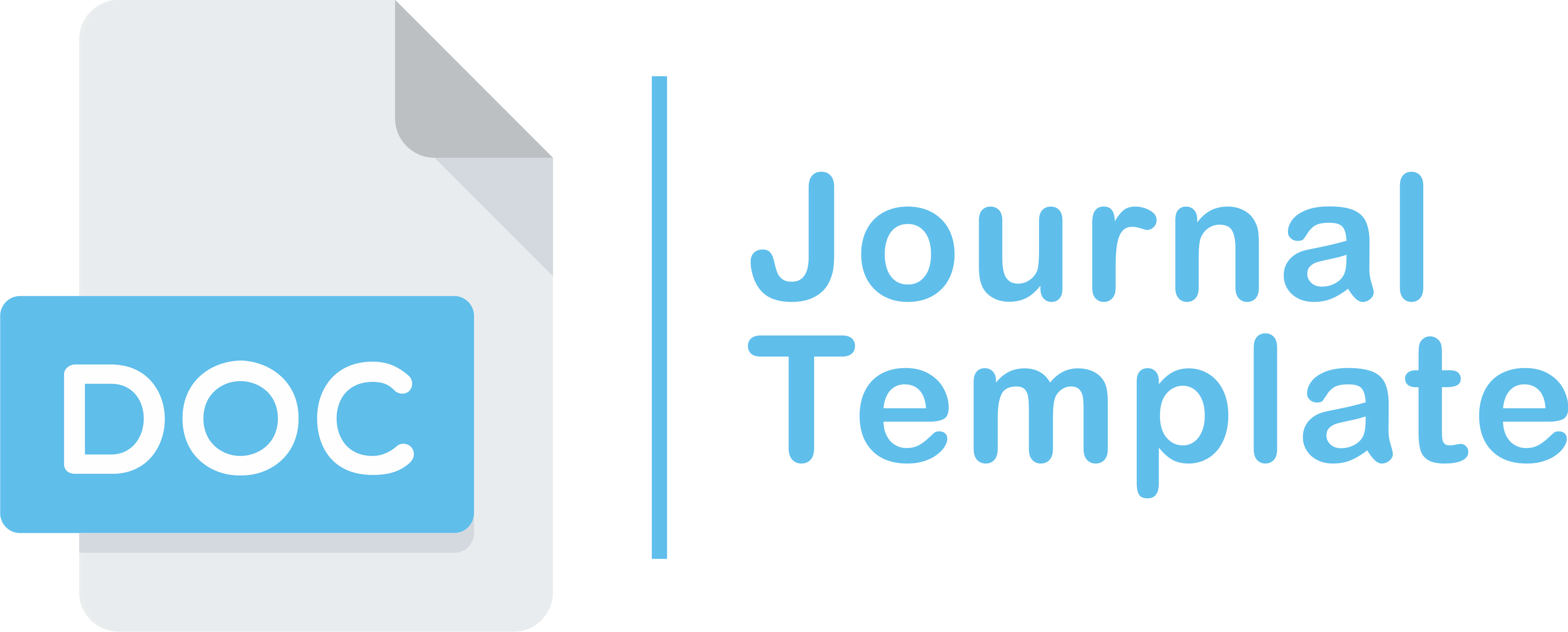Bureaucratic Politicization in the Process of Changing Bureaucratic Positions After the Vacancy of the Deputy Regent of Dharmasraya Regency in 2022
DOI:
https://doi.org/10.69989/0dbm5230Kata Kunci:
Politicization, Bureaucratic, Changing Bureaucratic PositionsAbstrak
Bureaucratic politicization refers to introducing bureaucratic reform in the management of regional government. The regional head and deputy regional head posts are political roles that oversee administrative positions within a region, so political influence is inherently intertwined with the bureaucracy. Dharmasraya Regency exhibits signs of bureaucratic politics, as seen by a vacancy in the position of deputy regent. This vacancy has resulted in numerous examples of non-job ASN inside the government of Dharmasraya Regency. This thesis seeks to analyze the political dynamics involved in the transition of bureaucratic positions in Dharmasraya Regency, particularly after the vacancy of the deputy regent position. This study employs a qualitative research methodology utilizing a case study approach. This thesis uses the theory of bureaucratic politicization pioneered by Barbara Geddes. The findings of this study suggest that there are indicators of the techniques employed by the regent in his role as PPK to determine bureaucratic positions. The regent also has a vested interest in the bureaucracy, as he desires a loyal and efficient bureaucratic system to ensure continued control until the end of his term. The regent's politicization of the bureaucracy is seen in the ambiguous enforcement of heavy sanctions against ASN.
Unduhan
Referensi
Belmonte, R., & Cerny, P. G. (2021). Heterarchy: toward paradigm shift in world politics. In Essays on Evolutions in the Study of Political Power (pp. 235–257). Routledge.
Blom‐Hansen, J., Baekgaard, M., & Serritzlew, S. (2021). How bureaucrats shape political decisions: The role of policy information. Public Administration, 99(4), 658–678.
Cingolani, L., Thomsson, K., & De Crombrugghe, D. (2015). Minding Weber more than ever? The impacts of state capacity and bureaucratic autonomy on development goals. World Development, 72, 191–207.
Creswell, J. W. (2014). A concise introduction to mixed methods research. SAGE publications.
Eckhard, S., & Ege, J. (2016). International bureaucracies and their influence on policy-making: A review of empirical evidence. Journal of European Public Policy, 23(7), 960–978.
Gans-Morse, J., Borges, M., Makarin, A., Mannah-Blankson, T., Nickow, A., & Zhang, D. (2018). Reducing bureaucratic corruption: Interdisciplinary perspectives on what works. World Development, 105, 171–188.
Geddes, B. (2023). Politician’s dilemma: building state capacity in Latin America. books.google.com.
Heidelberg, R. L. (2017). Political accountability and spaces of contestation. Administration & Society, 49(10), 1379–1402.
Jiang, J. (2018). Making bureaucracy work: Patronage networks, performance incentives, and economic development in China. American Journal of Political Science, 62(4), 982–999.
Kwamie, A., Agyepong, I. A., & Van Dijk, H. (2015). What governs district manager decision making? A case study of complex leadership in Dangme West District, Ghana. Health Systems & Reform, 1(2), 167–177.
McDonnell, E. M. (2017). Patchwork leviathan: How pockets of bureaucratic governance flourish within institutionally diverse developing states. American Sociological Review, 82(3), 476–510.
Pramono, W., & Mulia, R. A. (2023). Village Government Policy in Reducing Poverty. Jurnal Ilmiah Ekotrans & Erudisi, 3(2), 112–121.
Rochlitz, M., Kulpina, V., Remington, T., & Yakovlev, A. (2015). Performance incentives and economic growth: regional officials in Russia and China. Eurasian Geography and Economics, 56(4), 421–445.
Rockman, B. A. (2020). Bureaucracy, power, policy, and the state. In The state of public bureaucracy (pp. 141–170). Routledge.
Sahur, M., Krisnawansyah, Y., & Putri, R. P. (2023). The Relationship between Nagari Government Policy and Customary Law. Adabi: Journal of Public Administration and Business, 10(1), 1–11.
Sugiyono. (2016). Metodologi Penelitian Kuantitatif, Kualitatif, dan R&D. CV. Alfabeta.
Suryaningsih, S., Krisnawansyah, Y., Zamhasari, Z., Gafar, T. F., & Octavia, S. (2023). Analysis of the Village Head Replacement Mechanism Based on Law Number 6 of 2014 concerning Villages and Derivative Regulations. Jurnal Ilmiah Ekotrans & Erudisi, 3(2), 82–94.
Turner, M., Prasojo, E., & Sumarwono, R. (2022). The challenge of reforming big bureaucracy in Indonesia. Policy Studies, 43(2), 333–351.
Yang, G. (2021). The Paradigm Shift of Political Science from Being “Change-oriented” to “Governance-oriented:” A Perspective on History of Political Science. Chinese Political Science Review, 6(4), 506–545.
Unduhan
Diterbitkan
Terbitan
Bagian
Lisensi
Hak Cipta (c) 2024 Yulvia Alika, Tengku Rika Valentina, Doni Hendrik (Author)

Artikel ini berlisensiCreative Commons Attribution-ShareAlike 4.0 International License.
Copyright Notice
An author who publishes in the journal "Jurnal Ilmiah Ekotrans & Erudisi" agrees to the following terms:
Author retains the copyright and grants the journal the right of first publication of the work simultaneously licensed under the Creative Commons Attribution-ShareAlike 4.0 License that allows others to share the work with an acknowledgement of the work's authorship and initial publication in this journal
Author is able to enter into separate, additional contractual arrangements for the non-exclusive distribution of the journal's published version of the work (e.g., post it to an institutional repository or publish it in a book) with the acknowledgement of its initial publication in this journal.
Author is permitted and encouraged to post his/her work online (e.g., in institutional repositories or on their website) prior to and during the submission process, as it can lead to productive exchanges, as well as earlier and greater citation of the published work (See The Effect of Open Access).
All materials in this site are protected by the law. It is prohibited to quote a part of or all of this website contents for commercial purposes without the permission or consent of the editors.
If anyone finds one article or more in this journal violate or potentially violate one’s copyrights, please report to us through e-mail of Principle Contact.
Legal-formal aspects of accessing any information and manuscript in this journal website refer to the provision of license Creative Commons Attribution-Share Alike (CC BY-SA). Read more about the Creative Commons Attribution-ShareAlike 4.0 Licence here: https://creativecommons.org/licenses/by-sa/4.0/.
All information available in 'Jurnal Ilmiah Ekotrans & Erudisi' is academic in nature. 'Jurnal Ilmiah Ekotrans & Erudisi' is not responsible for loss due to the abuse of information in the website.
Information
Notice about change in the copyright policy of the journal 'Jurnal Ilmiah Ekotrans & Erudisi' : "From Volume 1, Nomor 1 onwards the copyright of the article published in the journal 'Jurnal Ilmiah Ekotrans & Erudisi' will be retained by the author"
Privacy Statement
The names and email addresses entered in this journal site will be used exclusively for the stated purposes of this journal and will not be made available for any other purpose or to any other party.




























